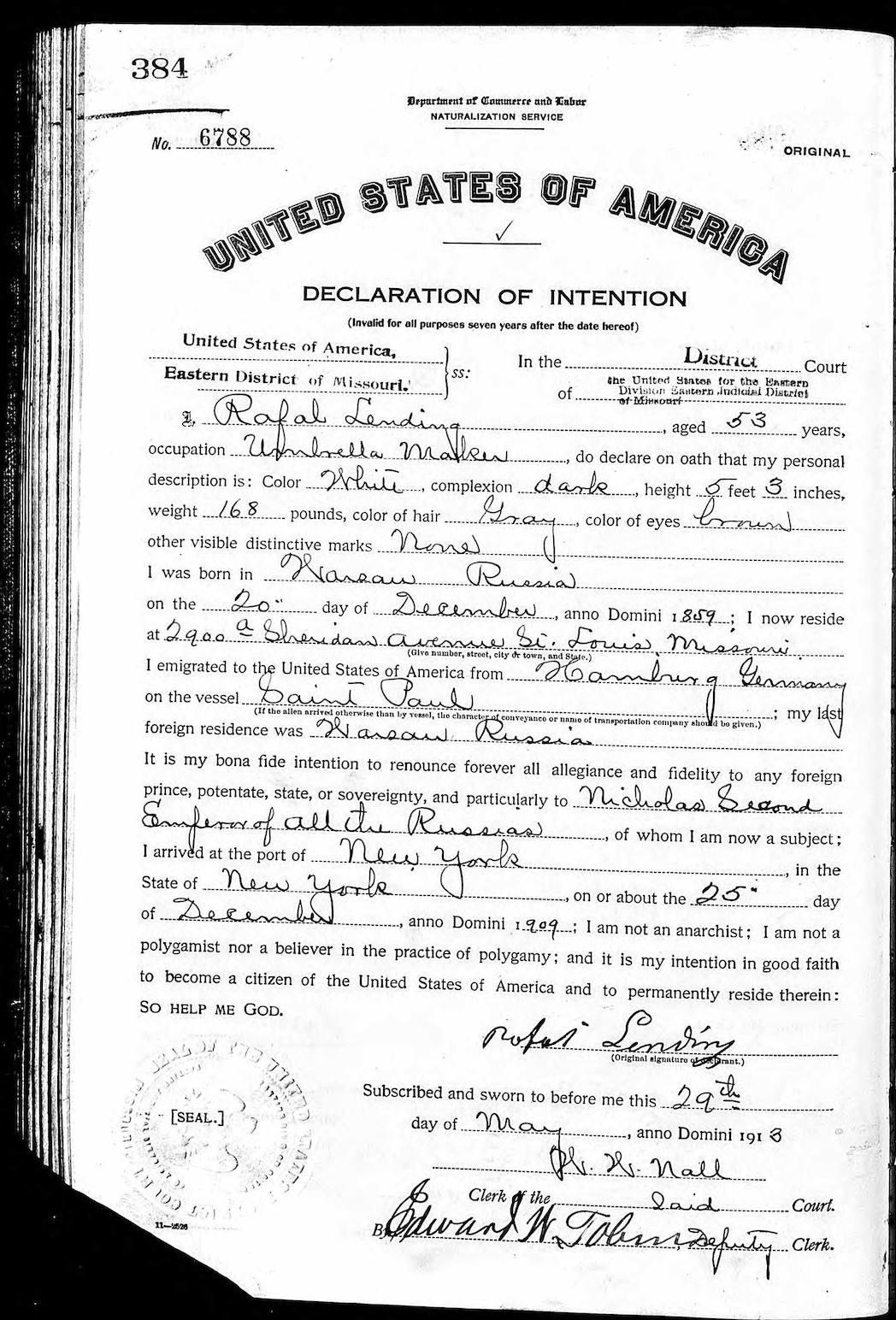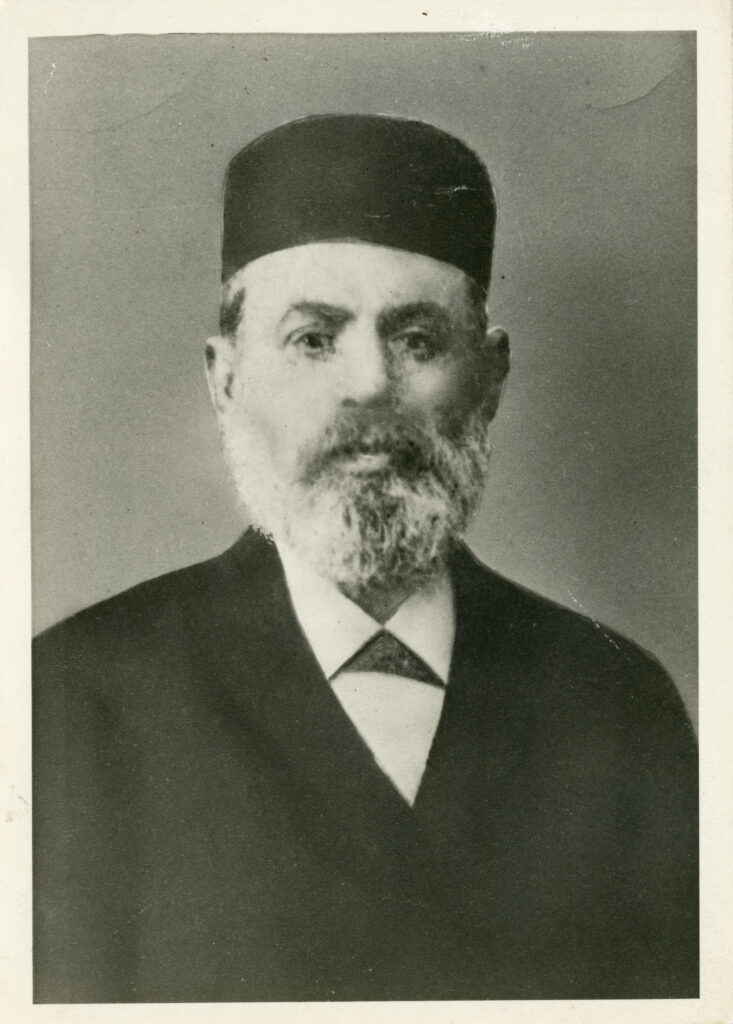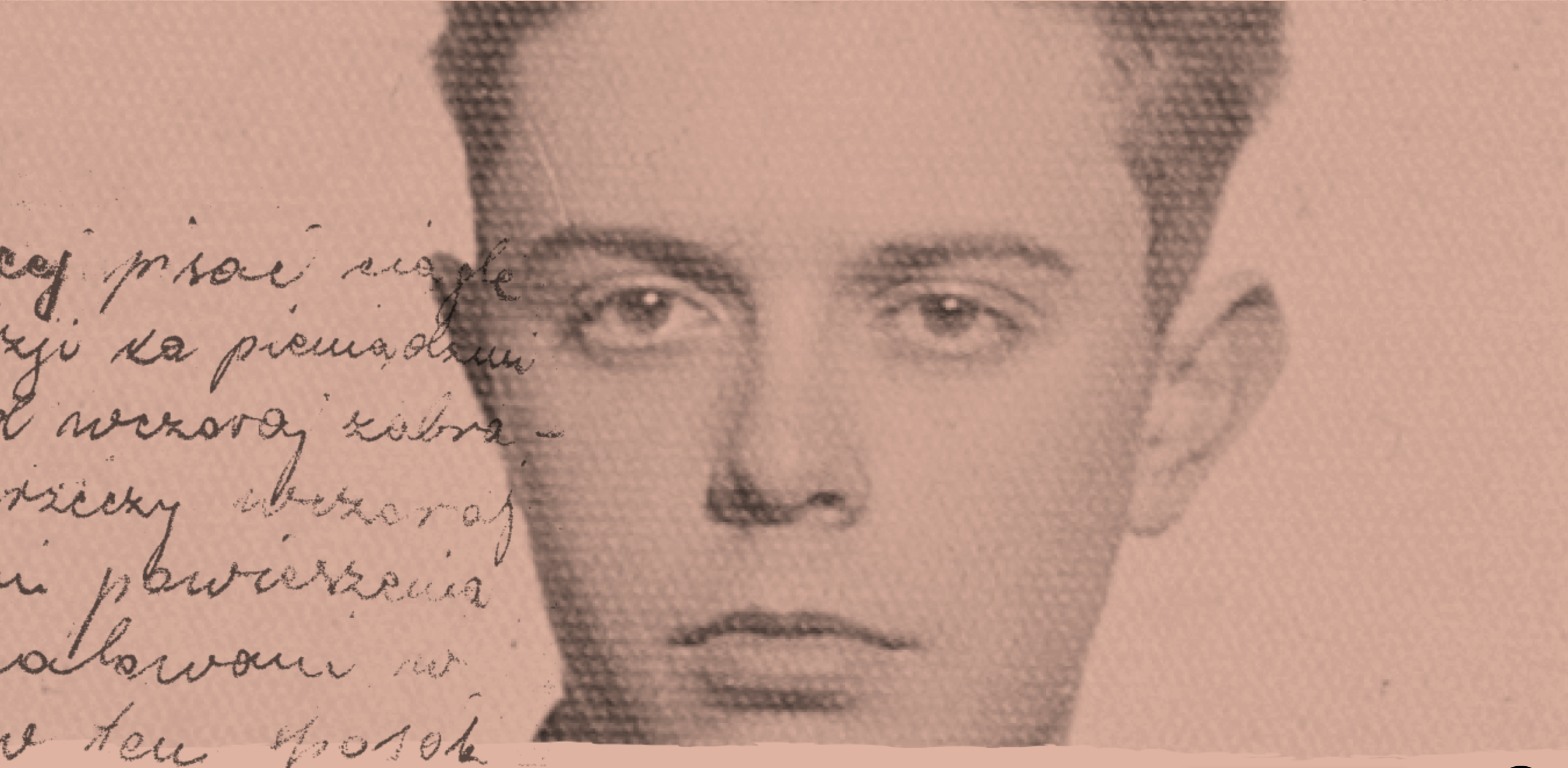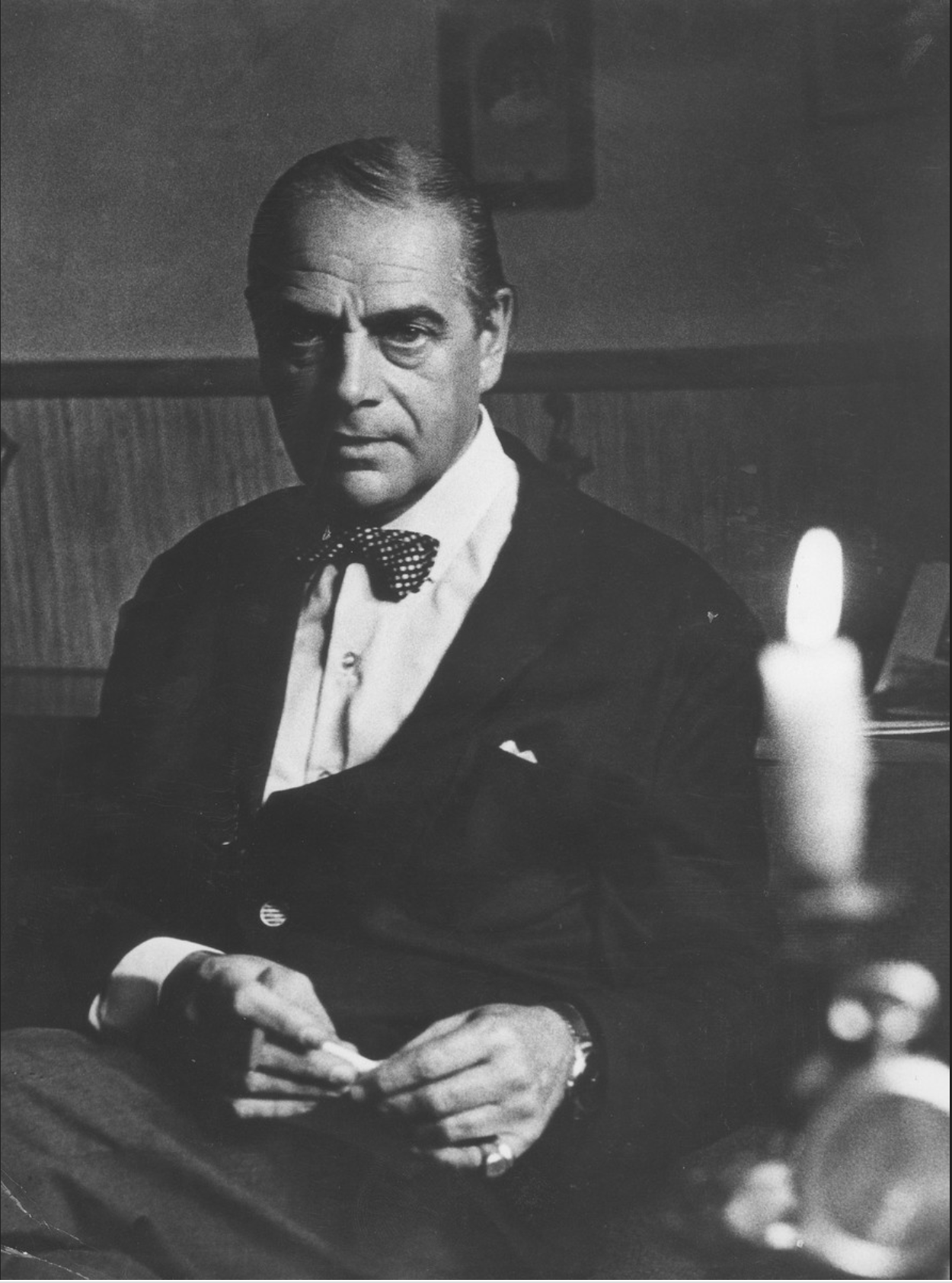Historical Fiction
The Umbrella Maker's Son
Born to a secure, middle-class Polish Jewish family, seventeen-year-old Reuven works alongside his father, an artisan businessman whose shop creates the finest handmade umbrellas in Poland. But the family’s peaceful life shatters when the Nazis invade their homeland, igniting World War II. With terrifying brutality, the Nazis confiscate their business, evict them from their home, and strip away their rights, threatening the lives of the city’s Jewish population, including Reuven and Zelda, the girl he loves.
Shortly after the Nazi occupation, Zelda and her family disappear, and Reuven and his father are forced into backbreaking physical labor that nearly kills them. For the young man and his family, the only chance to survive is escape—and some of them will die trying.
Fleeing a Nazi ambush through the surrounding forest, shot and wounded, Reuven is found by a local farmer who has never met a Jew—and agrees to help because he needs the boy to work the farm with him. The farmer’s wife, however, is not as kind. Her betrayal forces a desperate Reuven to escape. He embarks on a perilous journey through the Polish countryside, determined to reach the Kraków ghetto where he hopes to reunite with Zelda, whose life has also been forever changed by the horrors of occupation and war.
With exquisite attention to detail, The Umbrella Maker’s Son transports readers to the heart of Kraków, capturing the visceral essence of a community torn apart by war. The novel is recognized not only for its historical accuracy but also for its deeply personal exploration of family dynamics amidst chaos. A love story and a story of family, it is a riveting, heartfelt tale of survival, resilience, and unexpected hope in the face of terror and profound loss.
“Fans of Heather Morris and Lisa Barr will be captivated by Lending’s story of resilience and romance, a must-have for historical fiction sections.”
- Beth Brentlinger, Library Journal
The Inspiration
I owe the title of this book, along with much of its inspiration, to my great-grandfather, Raphael Lending, a Warsaw umbrella maker in the late 1800s, a time marked by virulent antisemitism. According to family lore, one day he came across a Polish police officer beating a Jewish man in the street. Hoping to stop the assault, Raphael intervened but ended up stabbing the police officer with a dagger concealed in the stem of his umbrella. Fearing life imprisonment or execution, he immediately uprooted his family, abandoned his umbrella making business, and escaped to America. They arrived at Ellis Island on 24 December 1909. A version of this incident serves as a key turning point for the Berkovitz family in the novel.


In addition to my great-grandfather, Holocaust survivors Saul Dreier and Ruby Sosnowicz were also invaluable sources of inspiration for this novel. Both Holocaust survivors from Poland and the subjects of a documentary filem I made over the course of three years, Saul & Ruby’s Holocaust Survivor Band, were also invaluable sources of inspiration for this novel. Over the ten years of knowing them, they’ve given me an intimate emotional and psychological understanding of what it was like to live through the Holocaust and how their traumas affected them later in life. During filming we returned to Poland and walked the streets where they grew up—Saul in Kraków, Ruby in Warsaw. Their recollections offered deeper insights into what it was like to grow up in these places before and during the war—the sights, smells, and sounds of the neighborhoods, the rhythms of life, and how everything changed dramatically after the Germans invaded. I am greatly indebted to Saul and Ruby for sharing their lives and trusting me with their personal stories.

Another important source of research for this novel was The Krakow Diary, by nineteen-year-old Julius Feldman (1923-1943). Written over two months in the spring of 1943, Feldman risked his life to provide a detailed account of what happened to his family and city from the German invasion of Kraków on 1 September 1939, up to his last entry on 11 April 1943. At the time, he was a forced laborer interned at Płaszów. His diary ends abruptly, mid-sentence, and remained hidden until it was discovered inside the walls of a Płaszów barrack at the end of the war. Certain events and descriptions in The Umbrella Maker’s Son are inspired by Feldman’s account, including the evictions of Jews from their homes; the confiscations of their furs, jewelry, money, and other belongings; the ghetto’s construction and brutal conditions; the forced labor they endured; the loss of their civil rights; the mass deportations; and the atrocities at Płaszów. Historians believe Feldman perished in the camp. The slim diary he left behind remains, in my mind, a miraculous gift to the world.

The Kraków Pharmacy by Tadeusz Pankiewicz was another essential historical source. Pankiewicz, a courageous Catholic pharmacist who risked his life running the only pharmacy in the Kraków Ghetto and saved many Jewish lives, inspired the creation of Mr. Malinowski in the novel. I am deeply grateful for Pankiewicz’s acutely detailed, first-person account of the horrific events that unfolded under the German occupation, documenting the nightmarish conditions and events that occurred inside the ghetto.

Part II of the book, where Reuven Berkovitz, the main character, works on Stanisław’s farm, draws from my own experiences working on a farm at the age of 16 in the North Platte area of Nebraska. Elements of Stanisław’s character and the farm work are inspired by the time I spent working for Joe Hertje, a complex man who served as a father figure and mentor. Like Stanisław, Joe was illiterate yet incredibly intelligent, possessing a deep knowledge of agriculture, mechanics, and construction. His racist and antisemitic views—rooted in ignorance and fear rather than hatred—opened my eyes to the complexities of human nature at a young age. Working for Joe and understanding him so deeply provided essential life lessons and insights into human psychology that shaped this book.
I began writing The Umbrella Maker’s Son in May 2019, during the pandemic, and completed it a year before 7 October 2023. In certain ways the world has changed dramatically since then, but the book’s core theme—how a young man during war copes with unimaginable loss, survives physically and mentally, and finds the strength to keep going—remains timeless and relevant. I hope readers will recognize Reuven’s losses—of home and homeland, family, dignity, and even identity—as a universal human experience shared by Jews, Palestinians, Ukrainians, Lebanese, and all those affected by war and prejudice. Wherever there is violent conflict, there is terrible, unimaginable loss and trauma. Exploring how this deeply human experience shapes Reuven Berkovitz, and discovering the remarkable sources of his resilience, form the heart of this novel.
The Inspiration
I owe the title of this book, along with much of its inspiration, to my great-grandfather, Raphael Lending, a Warsaw umbrella maker in the late 1800s, a time marked by virulent antisemitism. According to family lore, one day he came across a Polish police officer beating a Jewish man in the street. Hoping to stop the assault, Raphael intervened but ended up stabbing the police officer with a dagger concealed in the stem of his umbrella. Fearing life imprisonment or execution, he immediately uprooted his family, abandoned his umbrella making business, and escaped to America. They arrived at Ellis Island on 24 December 1909. A version of this incident serves as a key turning point for the Berkovitz family in the novel.


In addition to my great-grandfather, Holocaust survivors Saul Dreier and Ruby Sosnowicz were also invaluable sources of inspiration for this novel. Both Holocaust survivors from Poland and the subjects of a documentary filem I made over the course of three years, Saul & Ruby’s Holocaust Survivor Band, were also invaluable sources of inspiration for this novel. Over the ten years of knowing them, they’ve given me an intimate emotional and psychological understanding of what it was like to live through the Holocaust and how their traumas affected them later in life. During filming we returned to Poland and walked the streets where they grew up—Saul in Kraków, Ruby in Warsaw. Their recollections offered deeper insights into what it was like to grow up in these places before and during the war—the sights, smells, and sounds of the neighborhoods, the rhythms of life, and how everything changed dramatically after the Germans invaded. I am greatly indebted to Saul and Ruby for sharing their lives and trusting me with their personal stories.

Another important source of research for this novel was The Krakow Diary, by nineteen-year-old Julius Feldman (1923-1943). Written over two months in the spring of 1943, Feldman risked his life to provide a detailed account of what happened to his family and city from the German invasion of Kraków on 1 September 1939, up to his last entry on 11 April 1943. At the time, he was a forced laborer interned at Płaszów. His diary ends abruptly, mid-sentence, and remained hidden until it was discovered inside the walls of a Płaszów barrack at the end of the war. Certain events and descriptions in The Umbrella Maker’s Son are inspired by Feldman’s account, including the evictions of Jews from their homes; the confiscations of their furs, jewelry, money, and other belongings; the ghetto’s construction and brutal conditions; the forced labor they endured; the loss of their civil rights; the mass deportations; and the atrocities at Płaszów. Historians believe Feldman perished in the camp. The slim diary he left behind remains, in my mind, a miraculous gift to the world.

The Kraków Pharmacy by Tadeusz Pankiewicz was another essential historical source. Pankiewicz, a courageous Catholic pharmacist who risked his life running the only pharmacy in the Kraków Ghetto and saved many Jewish lives, inspired the creation of Mr. Malinowski in the novel. I am deeply grateful for Pankiewicz’s acutely detailed, first-person account of the horrific events that unfolded under the German occupation, documenting the nightmarish conditions and events that occurred inside the ghetto.

Part II of the book, where Reuven Berkovitz, the main character, works on Stanisław’s farm, draws from my own experiences working on a farm at the age of 16 in the North Platte area of Nebraska. Elements of Stanisław’s character and the farm work are inspired by the time I spent working for Joe Hertje, a complex man who served as a father figure and mentor. Like Stanisław, Joe was illiterate yet incredibly intelligent, possessing a deep knowledge of agriculture, mechanics, and construction. His racist and antisemitic views—rooted in ignorance and fear rather than hatred—opened my eyes to the complexities of human nature at a young age. Working for Joe and understanding him so deeply provided essential life lessons and insights into human psychology that shaped this book.
I began writing The Umbrella Maker’s Son in May 2019, during the pandemic, and completed it a year before 7 October 2023. In certain ways the world has changed dramatically since then, but the book’s core theme—how a young man during war copes with unimaginable loss, survives physically and mentally, and finds the strength to keep going—remains timeless and relevant. I hope readers will recognize Reuven’s losses—of home and homeland, family, dignity, and even identity—as a universal human experience shared by Jews, Palestinians, Ukrainians, Lebanese, and all those affected by war and prejudice. Wherever there is violent conflict, there is terrible, unimaginable loss and trauma. Exploring how this deeply human experience shapes Reuven Berkovitz, and discovering the remarkable sources of his resilience, form the heart of this novel.

